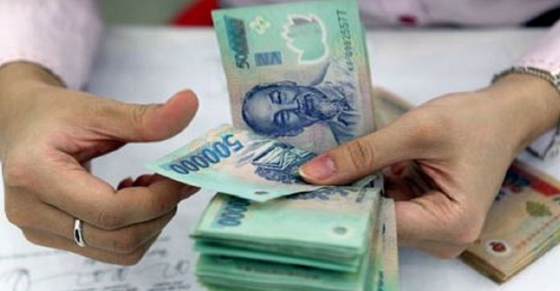Regulations on collecting money from judgment debtor’s profit in Vietnam
The content of the article below presents the current regulations on collecting money from judgment debtor’s profit in Vietnam

Regulations on collecting money from judgment debtor’s profit in Vietnam (Internet image)
1. Regulations on collecting money from judgment debtor’s profit in Vietnam
According to Article 22 of Decree 62/2015/ND-CP guiding the regulations on collecting money from judgment debtor’s profit in Vietnam:
The executor collects money from the business activities of those subject to enforcement periodically on a daily, weekly, monthly, quarterly, or annual basis, depending on the nature of the business sector of the person subject to enforcement.
- When determining the amount of money collected from the business activities of those subject to enforcement, the executor bases it on the business results according to the books, documents, and actual business situation of the person subject to enforcement.
- The minimum amount left for the person subject to enforcement must ensure the minimum living conditions for the person subject to enforcement and those whom they are obliged to support and nurture. The determination of the minimum living standard of the person subject to enforcement and those whom they are obliged to support and nurture is based on the poverty threshold of each locality where they reside. If the locality has no regulation, it follows the poverty threshold issued by the Prime Minister of the Government of Vietnam according to each specific period.
The minimum amount left for production and business activities is determined by the executor based on the nature of the business sector and scale of the business of the person subject to enforcement, and this amount can be adjusted.
2. Regulations on the collecting judgment debtor’s money or property held by a third party in Vietnam
According to Article 23 of Decree 62/2015/ND-CP guiding the regulations on the collecting judgment debtor’s money or property held by a third party in Vietnam?
- When there are grounds to determine that an organization or individual is holding money or assets of the person subject to enforcement, the executor prepares a work record or submits a written request to the organization or individual holding the money or assets to hand it over to the civil enforcement agency to execute the judgment.
Organizations or individuals holding money or assets of the person subject to enforcement who do not comply with the request of the executor to hand over the money or assets will be subject to measures to ensure and coerce the enforcement.
The costs of coercive enforcement are borne by the person subject to enforcement.
- In cases where the third party holding the money or assets of the person subject to enforcement does not comply with the request of the executor and hands the money or assets to the person subject to enforcement or another person, leading to non-execution for the judgment creditor, the third party must compensate for the damage according to legal regulations.
- In cases where it is discovered that an organization or individual is obligated to pay money or assets to the person subject to enforcement, and this amount has been determined by a legally effective court judgment or decision, the executor requests the organization or individual to hand over the money or assets to the civil enforcement agency to execute the judgment. If the organization or individual does not comply, the executor applies necessary coercive measures to the organization or individual to collect the money or assets for enforcement.
The costs of coercive enforcement in this situation are borne by the organization or individual subject to enforcement.
- Key word:
- judgment debtor’s profit
- Vietnam
- Cases of land rent exemption and reduction under the latest regulations in Vietnam
- Economic infrastructure and social infrastructure system in Thu Duc City, Ho Chi Minh City
- Regulations on ordination with foreign elements in religious organizations in Vietnam
- Increase land compensation prices in Vietnam from January 1, 2026
- Determination of land compensation levels for damage during land requisition process in Vietnam
- Who is permitted to purchase social housing according to latest regulations in Vietnam?
-

- Number of deputy directors of departments in Vietnam ...
- 15:04, 05/03/2025
-

- Cases ineligible for pardon in Vietnam in 2025
- 14:43, 05/03/2025
-

- Decree 50/2025 amending Decree 151/2017 on the ...
- 12:00, 05/03/2025
-

- Circular 07/2025 amending Circular 02/2022 on ...
- 11:30, 05/03/2025
-

- Adjustment to the organizational structure of ...
- 10:34, 05/03/2025
-

- Notable new policies of Vietnam effective as of ...
- 16:26, 11/04/2025
-
.Medium.png)
- Notable documents of Vietnam in the previous week ...
- 16:21, 11/04/2025
-
.Medium.png)
- Notable documents of Vietnam in the previous week ...
- 16:11, 02/04/2025
-
.Medium.png)
- Notable new policies of Vietnam to be effective ...
- 16:04, 02/04/2025
-
.Medium.png)
- Notable new policies of Vietnam effective from ...
- 14:51, 21/03/2025

 Article table of contents
Article table of contents
